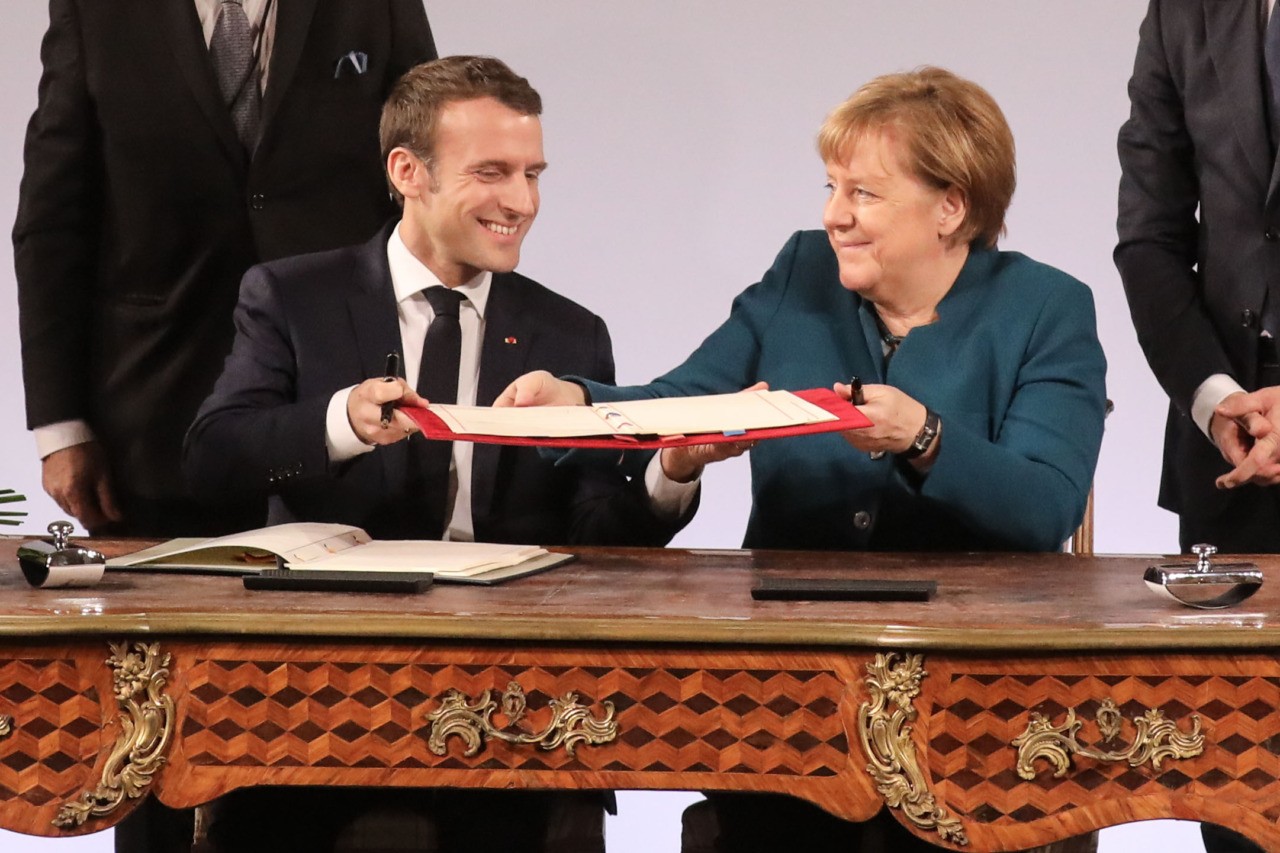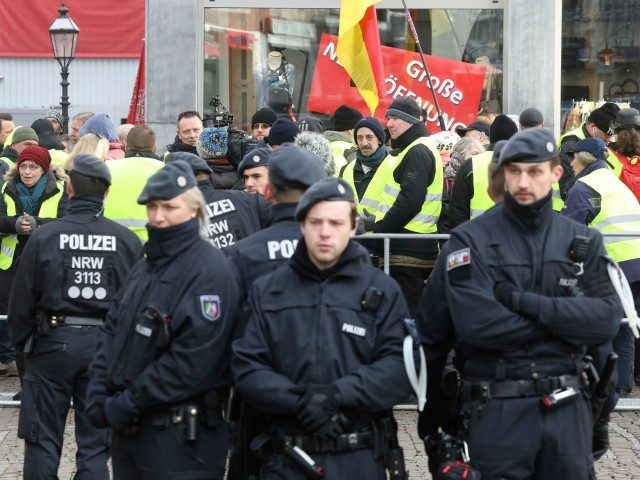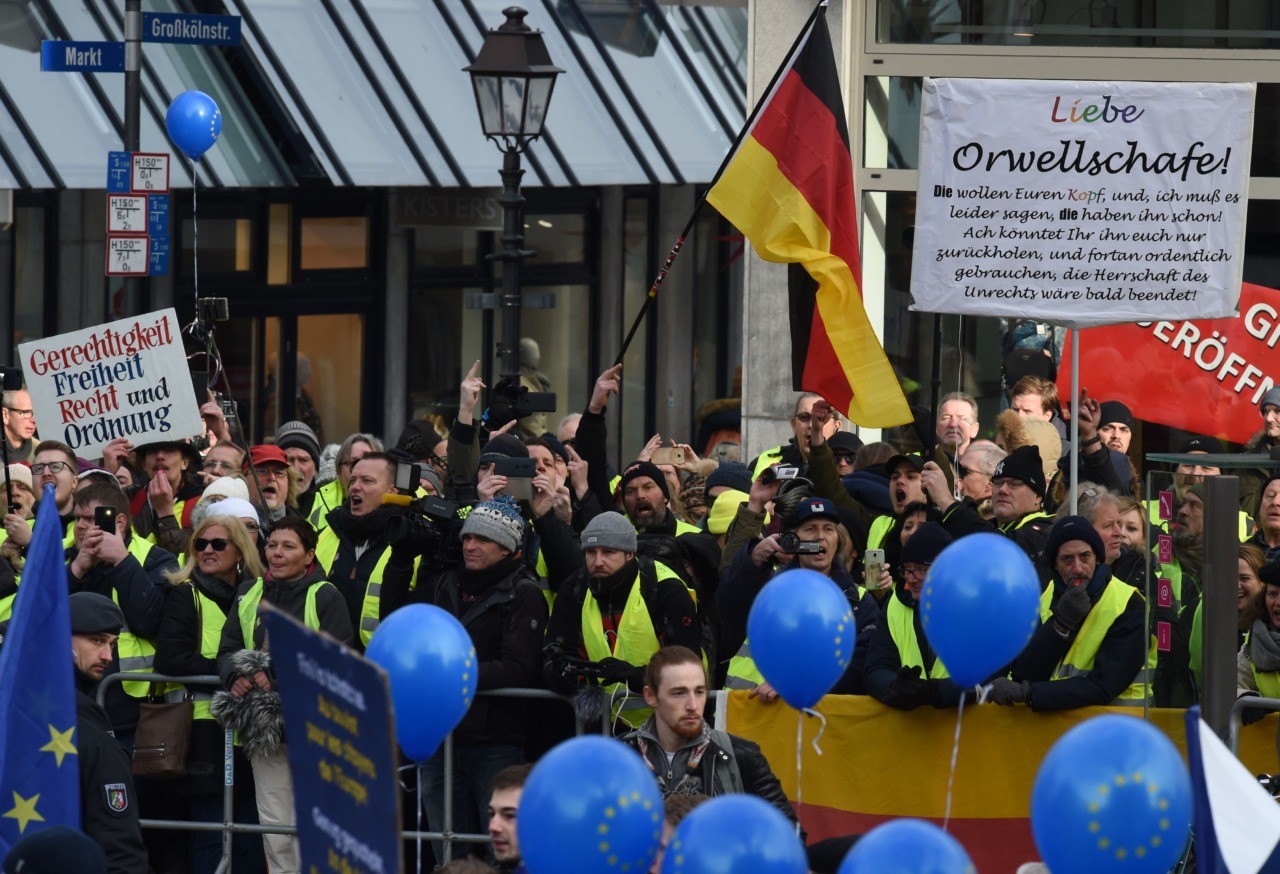German Yellow Vest activists protested Emmanuel Macron and Angela Merkel signing a treaty which aims to bring together the economic and defence policies of France and Germany in a prototype “Sovereign Europe”.
Germany’s Angela Merkel and France’s Emmanuel Macron signed the expansion of the 1963 French-German reconciliation Élysée treaty in Aachen, Germany, on Tuesday.
The treaty proposes to integrate aspects of France and Germany, including merging public transport networks and utilities in border regions, creating a common economic area, and developing shared social and political fields, according to Euractiv.
Most controversially, the treaty also includes plans for shared defence and foreign policy, building on Merkel’s earlier pledges of support for Macron’s call for an EU army.

French President Emmanuel Macron and German Chancellor Angela Merkel exchange the French-German friendship treaty during the signing ceremony, on January 22, 2019 in the town hall of Aachen, western Germany. (Photo by LUDOVIC MARIN/AFP/Getty Images)
Dr Merkel told media on Tuesday: “We commit ourselves to forming a joint military culture, a common defence industry, a common line and common policy on arms exports. In so doing, we wish to give our contribution to the development of a new European army.
“This will only work if we coordinate at the same time our foreign policies.”
Its signing was meant to send a message to Eurosceptics that the two EU leaders would continue their efforts to further integrate not only the EU, but their own countries.
The choice of German medieval city Aachen, which sits on the border with Belgium and the Netherlands, is significant as the residence and burial place of Charlemagne, the first Holy Roman Emperor and dubbed the “Father of Europe” for having united swathes of the continent by the 9th century.
A number of Yellow Vest protesters from Germany gathered, with one, Henrik, telling Sky News, “We are here to protest against Macron and Merkel because of the way they are changing Europe.
“This is not the idea of Europe. Europe is an economic platform that everyone can work together with — not the kind of Europe where leaders [tell us what to do].
“Countries have the right to say they want this or that, but not Europe.”
“I am against the way Europe is going right now. It’s not the way democracy works,” Henrik added.
Frenchmen wearing yellow, high-visibility vests began protesting against Macron’s progressive globalist reforms in late November, with the movement spreading to other parts of Europe and Canada.
“I think the Yellow Vests are not only a France project — it’s a worldwide project,” Henrik said, explaining the movement has united people around the world “who don’t want the elite taking the money of the poor people or the middle classes.”
“We are here saying it’s our right, it’s our country, and we say what happens in it,” Henrik added.
Macron and Merkel have positioned themselves as the leaders of the EU, with the French president announcing late last year that the “Franco-German couple” would become the “heart” of Europe, making the formation of an EU army at the core of their strategy.


COMMENTS
Please let us know if you're having issues with commenting.